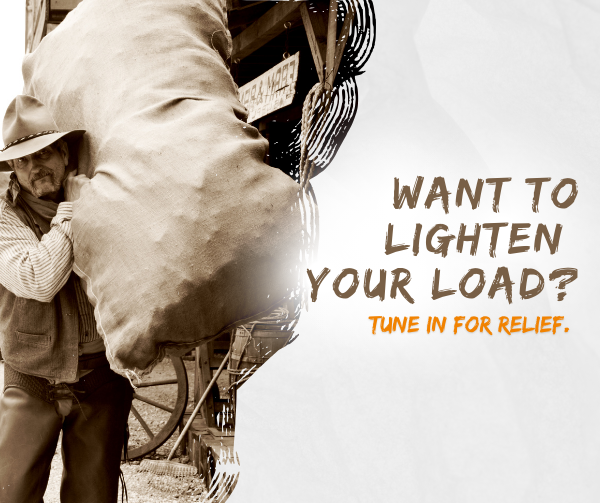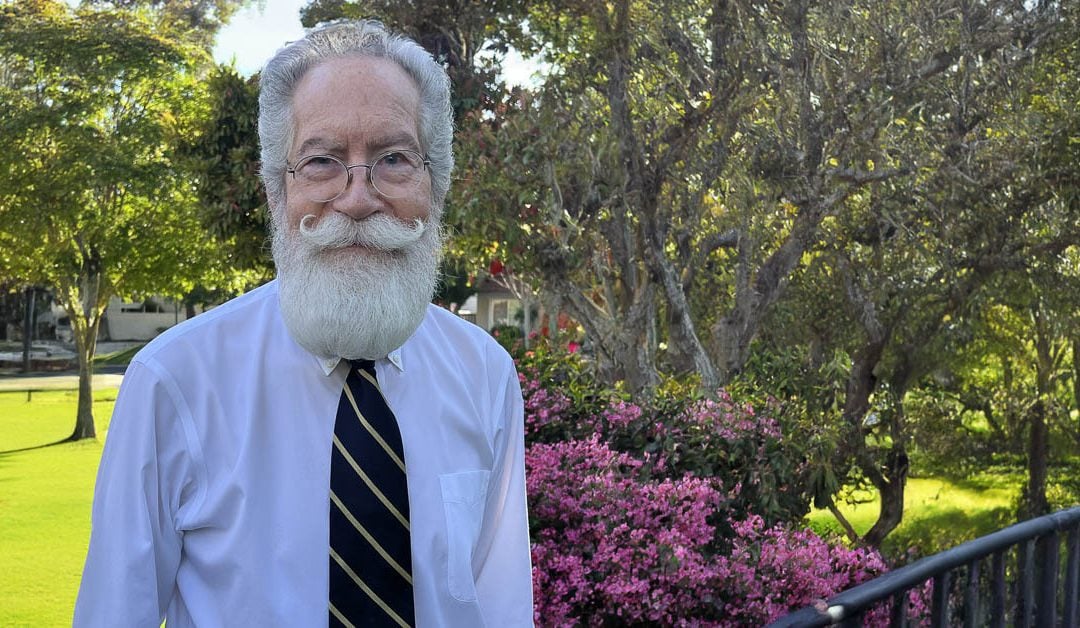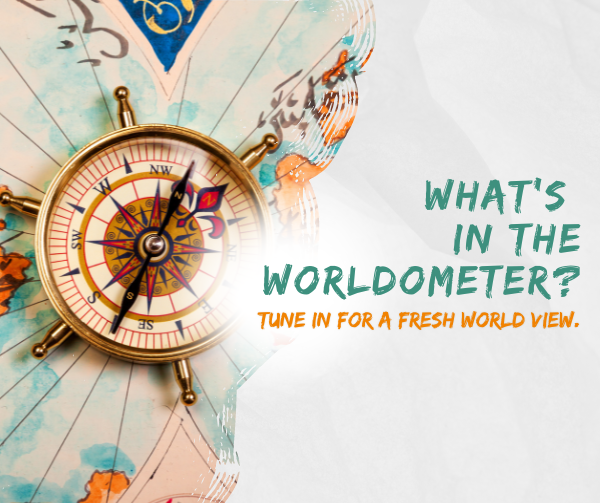Peace is not a definition, it is an inner experience
Read the original article in Spanish here.

1. What is peace? Can it be defined?
Peace is a feeling. Ultimately, yes we can always try to define it, and people have been trying to define it for a very, very long time. But when it comes down to it, peace is a feeling. It’s a bit like food. You can talk about food all you want, but your hunger will only be taken away when you eat it, and that’s a feeling of being satisfied. It is not objective, but it is subjective. And in the same way, I think the world has been trying to make peace objective, but peace is really subjective because it’s on a personal level that peace is experienced. This is something I talk about in my book.
2. Is peace for everybody? Or is it only for commonly known old souls as opposed to young souls?
Peace is for everyone, because peace is already there within all human beings.
3. You have been appointed by several Institutions as a Peace Ambassador, a difficult task given the existing threats against humankind: Wars, poverty, human rights violations, pandemics, global warming, etc. Can peace be achieved under these circumstances?
We need to understand what peace truly is, that it is the experience that is within every human being. It is not the removal of wars. It is not the removal of all these problems that people are having. What we have to understand is that these problems that people are having, that we consider, wars etc., all these things that you mention, they are symptoms of something. They are not the real disease. They are the symptoms. The real thing is peace. Because people do not experience that in their lives, these are the symptoms that take place.
4. The majority of human beings, who are not directly affected by the above-mentioned threats, live on a hectic world, to say the least. How can one find peace under so much noise and confusion?
The problem is the peace is inside of human beings. These are the expressions when a person does not know themselves. These are the consequences of things that will happen. Who is making this world a hectic place? Is it the trees? Is it the olives on the trees? Is it the flowers? Is it the butterflies? Or is it the human beings? All these problems, that we don’t like, are also created by the human beings who need peace. And the irony is that they already have peace
inside of them, but not following that simple formula of ‘Know thy self’. Not knowing themselves.
5. What causes greater disturbance: outer or inner noise?
Inner noise, always. You can plug your ears for outer noise. But inner noise? What ears do you plug up to get rid of it? So inner noise causes the worst problem.
6. Some people seeking peace choose solitary confinement or living alone on a mountain. Is this the only path? Can peace be found in our daily lives?
Peace is not on some mountain. Peace is not at the bottom of the ocean. Peace is inside of you. Wherever you go, you take peace with you. Just like you take your anger with you. You don’t have to leave your home and say ‘ok, I’ve left my anger at home’. You can go on top of a mountain and you can be angry because you brought the anger with you. You take all these elements wherever you go, but the beauty is, you also take peace with you wherever you go. And that’s what you have to choose.
7. Can peace be taught? If so, do we need to update our education system to include other type of knowledge, such as meditation, peace, humanity, etc.?
There needs to be a genuine interest that can be created so that people can start discovering that peace that is inside of them. This is the only part that can be taught. Peace itself cannot be taught and I explore this in my book.
8. In Greek classical times, Socrates encouraged self-knowledge “Know thyself,” he said. Is this the key to achieving peace?
Absolutely.
9. What do we learn when we listen to ourselves?
We learn about ourselves, not the noise. When we listen to the noise we get more confused. But when we truly listen to ourselves, then we hear what our needs are, not our wants. The noise is all about wants. The heart speaks about the needs, and the needs are to be quenched, to be fulfilled, to be in peace, in joy.
10. What do we risk when we hide our true self and live an unconscious life?
All you have to do is look at the world today. I talk about this in my book.
11. Balance and connection with oneself and the environment seems to be essential elements to find peace. Is this possible in an environment that is dying due to our own actions?
This is due to our actions. We choose our actions. We can also choose to bring joy and peace to ourselves. This is the choice we have to make. We sometimes pretend that we have no choice in this matter, but of course we have a choice in this matter. This is what Socrates’ message was ‘Know thyself’. That means you have a choice to know yourself. And that is what we need to choose. We need to choose the good.
12. What is harder: accepting death or accepting life?
Accepting life is much, much more difficult. Death is invetible. It’s going to happen and there’s nothing you can do about it. There’s nothing you can say about it. It will come, it will happen. But life happens every single day. You have to make a choice, whether you want to be with it, or not.
13. Albert Camus said that “hell is others”. Are heaven and hell real? What are they?
Heaven and hell, as people have in their concepts, whether they are real or not, I cannot say. But the heaven and hell that we have created on this earth for ourselves are very, very real. Hell is when somebody is neglected, when somebody lives their life unconsciously, when somebody tramples all over other people, when that person has no other sight but greed, because they have no appreciation, then that is hell. When children go hungry, when people go uneducated, when people are not being taken care of that is hell. When being just a normal human being is unacceptable, you have to be somebody else, then we have created a hell.
Heaven is when we care for each other, not just ourselves, but care for other people who are around us, make a better world. Practice peace, change your world. I have chapter in my book all about this subject.
14. In spite of all the world problems, there are some philosophers and thinkers who believe we are living a second renaissance. Another awaking of the collective consciousness to create a new version of humanism. Do you think the world is living a second renaissance? How would you describe it?
I would love to believe that the world is living in a second renaissance, but they’re not. Because, even though more and more people are seem interested in the idea of peace, little is being done to actually accomplish it. People are coming up with definitions of peace, of what peace is, which has nothing to do with peace. It is trying to take something that is very subjective and make it objective, because it’s so much more convenient for everybody else. And so they are coming up with the one statement of ‘this is the what peace is’, ‘success is what peace is’. Success is success. Success can have failure attached to it. You may have to fail ten times to get to success. Peace is peace. Peace is within you. You need to turn inward to feel the peace. Renaissance, I wish, but it isn’t.
15. Also, it is argued that this new renaissance is on a fast track due to technological changes? Can we use these technological changes also to the pursue of peace? A more humanized technology?
Technology is removing us from ourselves, even further and further. It is getting us in a headspace of looking at other people, what are other people going to think of us?
We need technology that brings us back home, to us. Only then will technology have a part to play in what is real, a real human being feeling peace in their lives, not just in their head, but in their heart.
16. Finally, could you briefly summarize to our audience what would they discover and learn with Escúchate?
With my book, they will learn about the importance of knowing themselves, understanding themselves. Having gratitude. Having those elements that we have forgotten about. That’s what this book is about. A beautiful, beautiful, reminder and a beautiful journey back to the heart of a human being.






